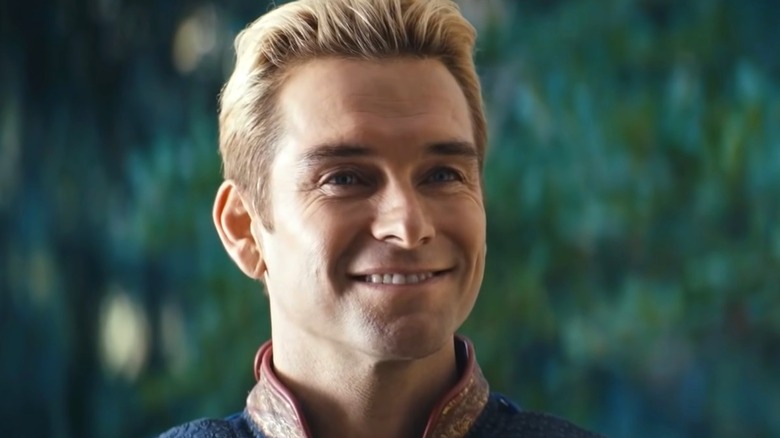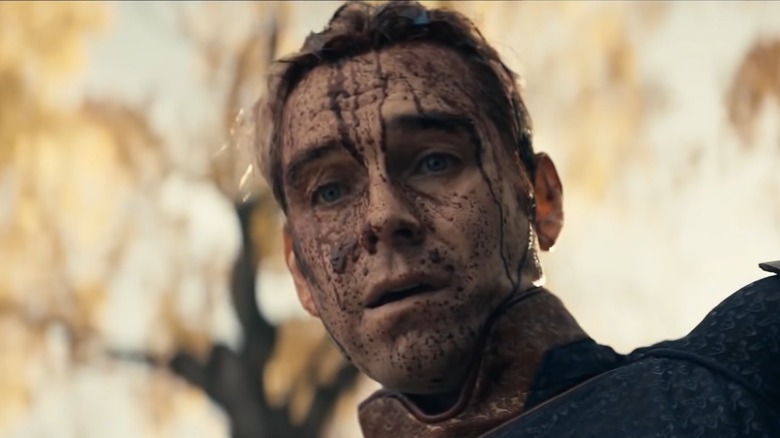Eric Kripke Confirms What We Suspected All Along About The Timeliness Of The Boys
In general, superhero movies and series tend to revolve around scenarios as outlandish as their characters' superhuman abilities. Even the few films that break with the often family-friendly format of superhero films, such as "Deadpool" or "The Suicide Squad," tend to do so by ramping up the gore, not by tackling society's most challenging problems.
One notable exception to that pattern is "The Boys," the satirical superhero series from Amazon in which mercenaries work to bring down a corrupt league of superheroes. While "The Boys" isn't afraid to deploy violence and gore to earn its TV-MA rating, it goes a bit further by incorporating some truly dark themes into its storylines, many of which mirror genuine real-world circumstances. Showrunner Eric Kripke told The New York Times, "We wanted to tell a story about white nationalism, xenophobia and racism, and how powerful people use those things to further their own interests." In its willingness to cynically subvert superhero tropes and engage with thorny cultural and political themes, "The Boys" shares more DNA with Alan Moore's "Watchmen" or Robert Kirkman's "Invincible," than a movie like "Deadpool."
Of course, "The Boys" is adapted from a Garth Ennis graphic novel that debuted in 2006, when the world was dealing with a (mostly) different set of issues. Kripke recently discussed how he managed to insert modern themes into the story laid out by Ennis and, in the process, confirmed all of our suspicions about why the show feels so timely.
The superhero genre turned out to be a great place to satirize this 'exact second'
Speaking with The Hollywood Reporter, Kripke explained that when he first entered talks to adapt "The Boys," he had dinner with Ennis to try and better understand the author's starting point for the comics. That conversation led to a significant revelation for Kripke, which helped influence the storylines the show would tackle.
Kripke told THR that he asked Ennis about what inspired the series, to which Ennis responded that he wanted to explore "what would happen if you were to combine the worst of celebrity with the worst of politics and what an absolutely dangerous combination that would be." That description led Kripke to connect the world of "The Boys" to "the exact second we were living in."
Kripke elaborated, "I've run a lot of shows and I've been waiting for that zeitgeist to fall into my lap, and here it was."
In other words, the culture found his show and not the other way around. Accepting what the fates had tossed his way threw open the doors for "The Boys" to feature timely storylines, while staying true to Ennis' world.
"From there, we tried to make it as topical as we could," Kripke explained. "The superhero metaphor just worked for every single element of our society for the moments we're living in right now."
Considering that Season 2 recently earned the show an Emmy nomination for the prestigious Outstanding Drama Series award, it seems this approach has paid off.

